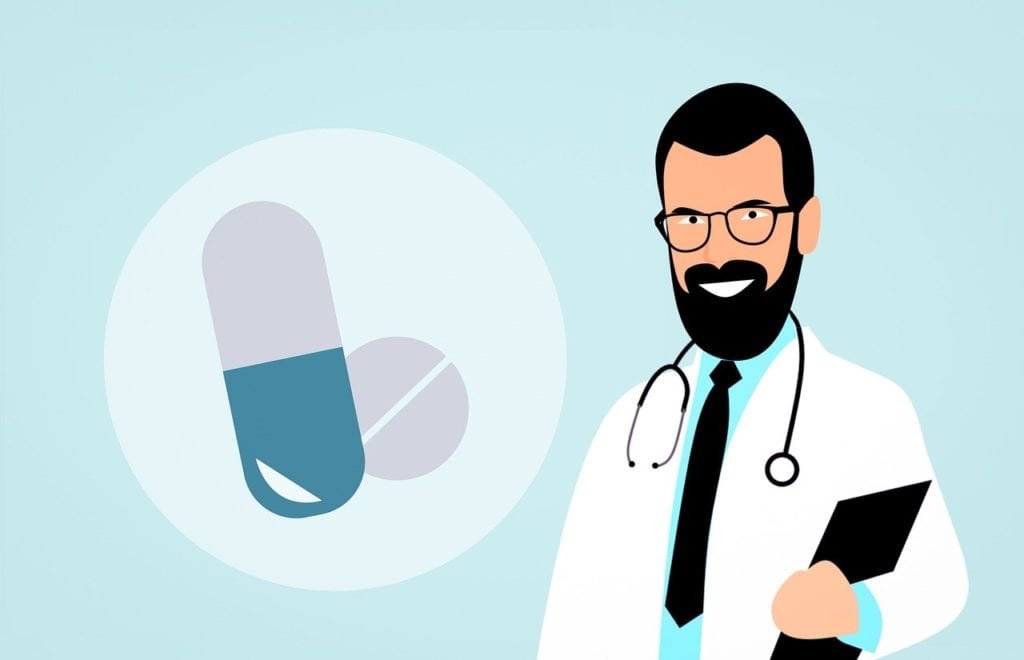What is Clinical research?
Clinical research is a branch of life sciences that is carried out in human subjects to determine the safety, efficacy, and cost-effectiveness of the new medication or medical devices. Clinical research is also carried out to compare new medications or medical devices with existing medications or medical devices in market5.
Overview in India and USA
Indian scenario:

Since 2005, after the implication of TRIPS the regulatory guidelines are consistently changing to promote clinical trials in India. Due to such changes in the last 15 years, there is the immense growth of the clinical industry in India3.
The Global share of CTs in India grew from 0.9 percentin 2008 to 5 percentin 2013 and still growing. India is an attractive destination for foreign Clinical research organizations (CROs) because of the larger patient pool, Lower unit cost for conducting trials. Due to an increase in foreign investment in clinical research has helped the government in utilizing the revenue generated by foreign CROs for the betterment of the healthcare system.
In India, the Institutional review board (IRB), Independent ethics committee (IEC) and government regulatory body is responsible for governing of Clinical trials4.
USA scenario:
The clinical trials conducted in the USA are governed by IRB, IEC, and USA food and drug administration. Clinical trials conducted in the USA are much costlier and less patient pool is available as compared to India. As discussed, earlier USA based CROs such as Iqvia, Covance, Parexel have expanded their business in India and thus are generating huge revenues.
Types of Clinical Research

There are several types of clinical research are listed below:
- Treatment Research: is done for medications, radio-pharmaceuticals, medical devices and new technique for surgery
- Prevention Research: is done to study different types of prevention techniques.
- Diagnostic Research: is done to diagnose a different condition or disorder.
- Screening Research: is done to screen patients with specific disease.
- Quality of life Research: done to find out various methods to improve the life quality of patients suffering from chronic illness.2 (eg: cancer)
Phases of clinical trial:

- Phase I trials are performed on a smaller (20 to 80) group of healthy volunteers. The main objective of the phase 1 trial is to determine the safety, tolerability, pharmacokinetics (pK), and pharmacodynamic (pD) aspects of the drug.
There are 2 different types of dose escalation studies in phase 1 of clinical trials:
- Single ascending dose studies (SAD): single dose is given to a smaller group of patients and then the patients are monitored over a period of time for presence adverse drug reactions. If patients do not show any adverse reactions then the dose of the drug is escalated and a higher dose is given to a new group of subjects.
- Multiple ascending dose studies (MAD): done to get a deeper insight into the pK and pD parameters of multiple doses of drugs.
- For phase II the patient number required is less than 100. This study provides preliminary efficacy and safety data.
- Phase III studies are done for therapeutic confirmation and comparison purposes.
- Phase IV study is also known as post-marketing surveillance. This study is done to identify the late effects of the medication5.
Importance of Clinical Research in the Pharma Industry
Clinical research provides information on safety, efficacy, and cost-effectiveness of the new drugs, medical devices, etc. In the initial stages of drug development, various in vitro tests (biochemical assay/ cell-based assays) and pK, pD data obtained from in vivo animal studies are not sufficient for a new drug to get regulatory approval for use in human patients.
To launch a new drug in market safety, efficacy data in humans is essential. This data is obtained from clinical research.
Comparative studies in clinical research helps in comparing the newer devices/drug/ drug combination with the orthodox devices/drug/ drug combination in the market.
The post-marketing surveillance in clinical research helps in determining the long-term adverse drug reactions. Also, real-world evidence (RWE) data obtained from clinical research helps the researcher to analyze and understand the long-term effects of the test drugs.
Thus, for the pharmaceutical industry, clinical research is extremely important to get their respective newer medication product in market5.
Conclusion:

- Clinical research also known as clinical trials gives us data on safety, efficacy, and cost-effectiveness of the test drug, medical device etc.
- Based on the parameters mentioned a drug is either approved by WHO, FDA for its marketing.
- A Real-life evidence survey conducted in clinical research helps to know the late-effects of a medication. Based on the severity of the after-effects the drug is banned and recalled from the market. (eg: In November 2019 FDA recalled several Angiotensin II receptor blockers (ARBs) such as Valsartan, Losartan, and Irbesartan1).
- As a profession, clinical research in India is expanding at a high rate and thus creating a plethora of job opportunities in India.
- In clinical research, the National Institute of Health (NIH) conducts clinical research trials for several disorders, including cancer, allergy, neurological disorders, and infectious diseases7.
- Due to radiation therapy clinical trials for cancer treatment has improved the cancer treatment and reduced side effects. In radiation therapy high doses of radiation are used to kill cancer and tumor cells15.
Notations:
CROs: is a clinical research organization that conducts clinical trials on behalf of pharmaceutical and biotechnological companies13.
CTs: Clinical trials are the trials conducted in a large group of human participants to evaluate the safety, efficacy, and cost-effectiveness of the new test drug or medical device13.
The Institutional review board (IRB) and Independent Ethics Committee (IEC) consist of medical and non-medical professionals whose responsibility is to ensure the protection of rights, safety, and well-being of human subjects involved in the trial14.
WHO: also known as the World Health Organization is a global agency that sis responsible for maintaining public health worldwide.
pK: Pharmacokinetic is a branch of Pharmacology that determines the fate of drugs inside the body8.
pD: Pharmacodynamic is a branch of Pharmacology which determines the mechanism of action of the drug inside the body to obtain a desired therapeutic effect8.
Angiotensin: is a part of the renin-angiotensin system. It is a peptide hormone that causes vasoconstriction and increases blood pressure8.
Angiotensin 2 receptors: are expressed in vascular endothelium, adrenal medulla, kidney, and brain areas8.
ARBs: are antihypertensive drugs responsible for blocking angiotensin 2 receptors and thus leads vasodilation8.
FDA: The Food and Drug Administration (FDA) is responsible for protecting the public health by assuring the safety, efficacy, and security of human and veterinary drugs, biological products, medical devices, our nation’s food supply, cosmetics, and products that emit radiation9.
Covance: is a global contract research organization based in Princeton, New Jersey, providing laboratory testing, pre-clinical, clinical service to the chemical/agrochemical, biotechnological and pharmaceutical industries. The company is owned by LabCorp10.
Iqvia: is a USA based clinical research organization providing clinical services to the biotechnological and pharmaceutical companies. As of 2019, IQVIA was reported as the world’s largest CRO11.
Parexel: is United States-based CRO which conducts clinical trials on the behalf of pharmaceutical companies12,
NIH: National Institute of Health is a primary agency of the United States founded in 1880 and at present is a part of the United States Department of Health and Human Services7.
TRIPS: Is an Agreement on Trade-Related Aspects of Intellectual Property Rights is an international legal agreement between all members of the nation of World Trade Organization16.
References:
- Drug safety for ARBs: Valsartan, Losartan, and Irbesartan |FDA
- Types of Clinical Research|FDA
- Enhancing Privacy, Improving Health Through Research |Institute of Medicine (US)
- Clinical trials industry in India: A systematic review |Mondal, S. and Abrol, D., 2015
- Thorat, S. B., Banarjee, S. K., Gaikwad, D. D., Jadhav, S. L., & Tharat, R. M. (2010). Clinical trial: a review. International Journal of Pharmaceutical Sciences Review and Research [Internet], 1(2), 101-106.
- Finding a Clinical Trial | NIH
- Clinical Research Trial for you | NIH
- Essentials of Medical Pharmacology |Tripathi, K. D. (2013)
- FDA Website
- Covance: a global Contract Research Organization
- IQVIA Website
- Parexel
- Clinical Pharmacy Book-review: Tipnis and Bajaj
- Clinical Research: Institutional Review Board / Independent Ethics Committee |
- Radiation Therapy
- Overview: the TRIPS Agreement |WTO

